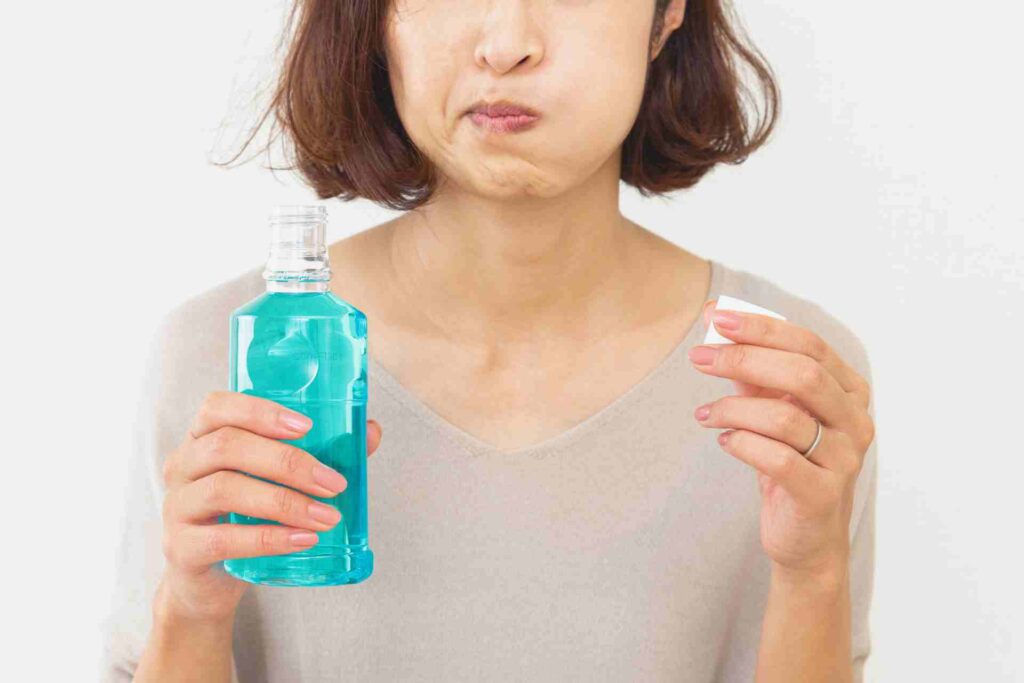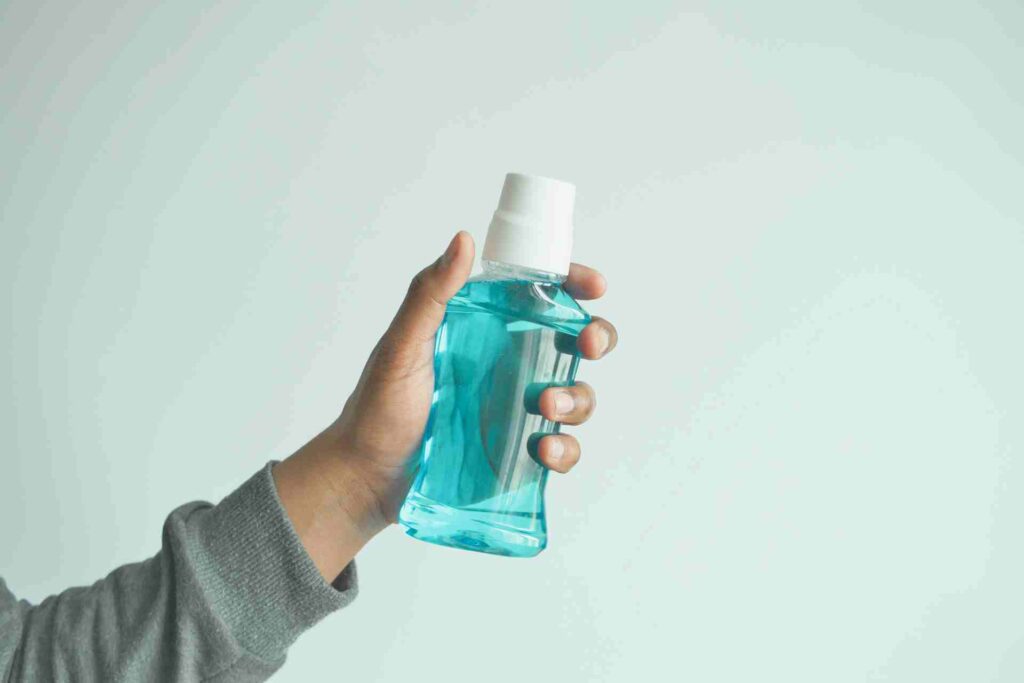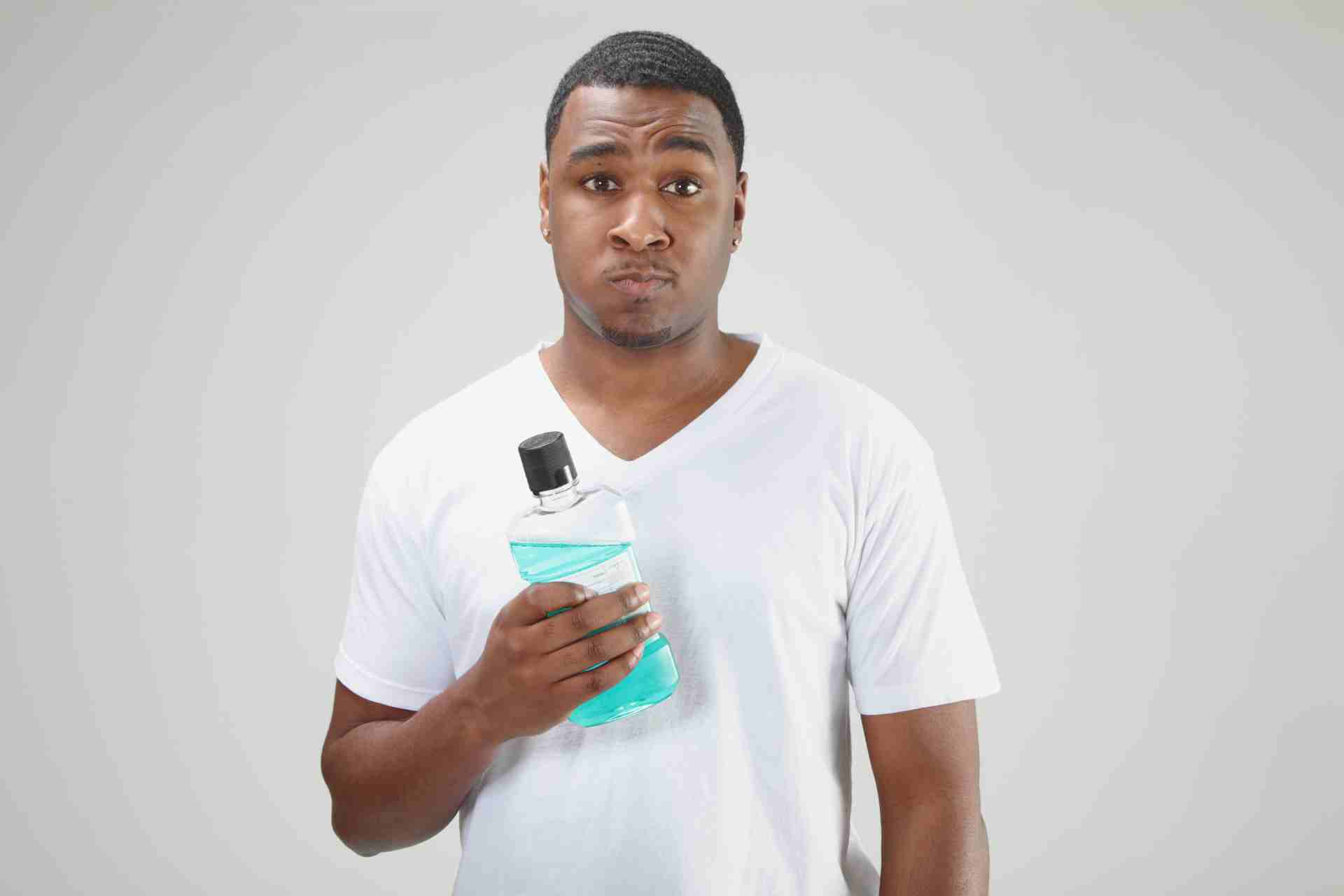Mouthwash is a staple in many oral hygiene routines. It gives the mouth a refreshing, clean feeling after brushing. But have you ever stopped to check the expiration date on the bottle?
Like most dental products, mouthwash doesn’t last forever. Over time, its active ingredients break down, making it less effective at killing bacteria and freshening breath.
So, does that mean you should toss out an expired bottle? Or is it still safe to use?
Let’s break it down: how long mouthwash lasts, how to tell if it’s expired, and what to do if yours is past its prime.
How Long Does Mouthwash Last?
Most mouthwashes last between 2 to 3 years from the date they’re manufactured. After that, the active ingredients—like fluoride and antibacterial agents—start to break down, making the product less effective.

But not all mouthwashes are created equal.
- Alcohol-based mouthwashes tend to last longer because alcohol acts as a natural preservative. These formulas can often maintain their effectiveness closer to the 3-year mark.
- Alcohol-free mouthwashes usually have a shorter shelf life, especially if they contain natural ingredients like essential oils. Without alcohol to preserve them, they can start degrading sooner.
- Prescription mouthwashes (like chlorhexidine) typically expire faster, often within a year of being dispensed.
The takeaway? If your mouthwash is past its expiration date, it might not be doing its job anymore. Checking the label before use is always a good idea.
Why Does Mouthwash Have an Expiration Date?
Mouthwash might seem like it lasts forever, but those expiration dates exist for a reason. Over time, the ingredients that make mouthwash effective start to break down, meaning it may not work as well as it should.
While expired mouthwash isn’t necessarily dangerous, it might not be doing much for your oral health. If you’re unsure whether to keep or toss an old bottle, it’s best to err on the side of caution.
How Can You Tell If Mouthwash Is Expired?
Not sure if your mouthwash is still good? Checking the expiration date is the easiest way to know. But sometimes, even before the date has passed, signs of expiration start to show.
Here’s what to look for:
Expiration date. Most mouthwashes have a printed expiration date on the bottle or cap. If it’s past that date, there’s a good chance the formula has started to break down.
Changes in appearance. If the liquid looks cloudy, has changed color, or has separated, it’s a sign the ingredients are no longer stable.
Unusual smell or taste. Expired mouthwash might smell or taste off due to ingredient degradation. If it doesn’t have that fresh, minty kick, it’s probably time to toss it.
If you see these signs, don’t use the mouthwash. Even if it’s just a bit past the expiration date, it’s not worth it. A new bottle will work better to keep your mouth clean and your breath fresh.
What Happens If You Use Expired Mouthwash?
Using old mouthwash might not seem like a problem, but it can be. Over time, its ingredients stop working. In some cases, it could even be harmful.

Here’s what can happen if you use expired mouthwash:
Active ingredients degrade. Fluoride, antibacterial agents, and essential oils slowly lose their potency. This means your mouthwash may no longer help fight cavities or bacteria as effectively.
Preservatives weaken. Many formulas contain stabilizers to prevent bacteria or mold from growing. Once these weaken, your mouthwash could become contaminated.
Manufacturers test for safety and performance. Expiration dates aren’t random. They’re set based on how long a product remains effective and safe to use.
It may cause irritation. Some ingredients become unstable over time, potentially leading to irritation or an unpleasant taste.
Bottom line? Expired mouthwash is unlikely to help your oral health and may even introduce bacteria instead of eliminating it. When in doubt, toss it out.
What Do Regulations Say About Expired Mouthwash?
Mouthwash expiration dates are set based on safety and effectiveness standards established by health organizations. Both the FDA (Food and Drug Administration) and ADA (American Dental Association) have guidelines that ensure mouthwash performs as intended.
The FDA requires expiration dates on over-the-counter dental products, including mouthwash. This ensures that consumers are using products with active ingredients that still work as intended.
The ADA emphasizes product effectiveness. If a mouthwash is expired, there’s no guarantee that it still meets the ADA’s standards for:
- preventing plaque
- reducing bacteria
- freshening breath
Regulated ingredients have proven shelf lives. Ingredients like fluoride, antibacterial agents, and antiseptics undergo stability testing to determine how long they remain effective.
In short? Expiration dates exist for a reason. If a product has passed its prime, there’s no way to know if it’s still doing its job.
What Should You Do with Expired Mouthwash?
If you find an old bottle of mouthwash in your cabinet, here’s how to dispose of it properly:
Pour it down the sink. Run the tap while pouring to dilute it safely. Most formulas are water-soluble and won’t harm your plumbing.
Recycle the bottle. If the bottle is made from recyclable plastic, rinse it out and place it in the recycling bin. Check local recycling guidelines to be sure.
If you’re looking for ways to repurpose expired mouthwash, don’t worry—we’ll cover that next!
Can Expired Mouthwash Be Used for Other Purposes?
Just because expired mouthwash isn’t safe for oral use doesn’t mean you have to throw it away immediately. Some people repurpose it for household tasks. However, it’s important to know what it can—and can’t—be used for.
- Household cleaner – Can help disinfect sinks, toilets, and surfaces.
- Foot soak – May reduce odor when added to warm water.
- Insect repellent – Some claim it helps keep mosquitoes away.
- Not for skin or wounds – Expired ingredients could cause irritation.
How to Store Mouthwash for Maximum Shelf Life

Proper storage helps keep mouthwash effective for as long as possible. Follow these simple tips to prevent it from expiring too soon:
Store in a cool, dry place. Heat and humidity can break down active ingredients. A cabinet away from direct sunlight is best.
Keep the cap sealed. Tightly closing the bottle prevents evaporation and contamination.
Avoid transferring to other containers. Unsterilized bottles can introduce bacteria and compromise the formula.
When should you replace your mouthwash?
- If it’s past the expiration date.
- If it looks, smells, or tastes off, even before expiration.
- If it has been stored improperly (e.g., extreme heat or exposure to air).
Key Takeaways
- Mouthwash expires after 2 to 3 years, losing effectiveness over time.
- Expired mouthwash may not kill bacteria and could harbor microbial growth.
- Proper storage helps extend shelf life, but once it’s expired, it’s best to dispose of it.
- Alternative uses exist, but expired mouthwash should not be used for oral hygiene.
Using expired mouthwash won’t necessarily harm you, but it won’t be effective either. To maintain the best oral health, stick to fresh, active products and replace mouthwash once expired.
For more expert dental tips, follow @joycethedentist on social media!
FAQs
Can I use mouthwash past the expiration date if it looks fine?
Not recommended—the active ingredients may no longer be effective, even if it looks normal.
Does refrigerating mouthwash extend its shelf life?
No, mouthwash is best stored at room temperature. Refrigeration won’t preserve the ingredients and may even cause separation.
Is homemade mouthwash a better alternative?
It depends—homemade mouthwash lacks preservatives, meaning it expires much faster than store-bought options. Always make small batches and store them properly.
Can expired mouthwash make you sick?
It’s unlikely, but bacterial contamination in expired mouthwash could cause minor irritation or an unpleasant taste. If in doubt, throw it out.
Why do some mouthwashes not have an expiration date?
Some manufacturers don’t print expiration dates because their formulas have long shelf lives, especially alcohol-based versions. However, effectiveness still declines over time.
Does mouthwash expire faster once opened?
Not necessarily, but exposure to air and bacteria can degrade the formula more quickly. Always seal the cap tightly after each use.





















